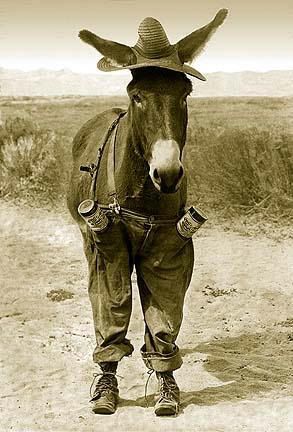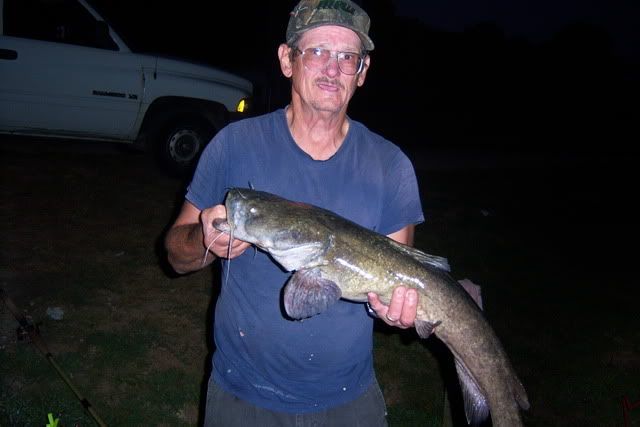Post by naturelovr on Dec 30, 2011 4:22:38 GMT -6
Wall Street Journal
DECEMBER 28, 2011
By ANA CAMPOY
Drought Leads to Stray Donkey Deluge
DALLAS—Law-enforcement agencies in Texas are grappling with an unusual problem: stray donkeys, which are roaming roads and fields in growing numbers and overwhelming animal shelters.
The donkey predicament is one of the odder ramifications of the record-setting drought that has dried up Texas. Hay supplies have shriveled, causing prices for a bale to more than double over the past year.
Now, authorities say, owners who no longer can afford to feed their donkeys are turning them loose.
"The donkey problem is epidemic," said Patrick Bonner, senior sergeant at the Dallas County Sheriff's Department. "We're inundated."
Donkey-catching duties are eating up his officers' time, he said, taking them away from patrolling traffic and writing tickets. The donkey population at his agency's livestock center on the outskirts of Dallas has expanded from four on average at the beginning of this year to more than 20.
Domestic pets across the country have been losing their homes since the recession started tightening their keepers' budgets. But the current hay shortage is making it even tougher for horses and donkeys, said Jacque Schultz, senior director of the equine fund at the American Society for the Prevention of Cruelty to Animals in New York.
"What I hear from the rescue groups is most of them are full and they are having trouble placing animals," she said. That includes operations beyond the drought-affected areas that nevertheless are feeling the pinch of higher hay prices.
Texas, though, is among the worst off, with its abundance of ranches and farms and with drought covering practically the whole state. Earlier this year, the ASPCA launched a $250,000 "bale-out" to buy feed for shelters and owners in Texas and neighboring Oklahoma.
Texas farmers have racked up billions of dollars in drought-related losses, including some $750 million in ruined hay, according to Larry Redmon, a forage expert at Texas A&M University. Hay prices jumped to $250 to $275 a ton from about $120 a ton last year, he said.
Among livestock, donkeys are the most likely to be kicked out first by struggling ranchers, experts say, because they are of little agricultural use. Most of them are oversized pets or serve as flock protectors to fend off predators such as coyotes. (Unlike horses, which flee when threatened, donkeys tend to stand their ground and attack, according to connoisseurs.)
Donkeys, also known as burros, also are harder to sell than other farm animals, and many auctions are turning them down, particularly the males, known as jacks.
"You cannot give a jack away," said Beverly Miller, who's been in the equine-auctioning business for decades in Ector, Texas, near the Oklahoma line.
Abandoning livestock animals is illegal in Texas, and is punishable by fines and up to a year in jail. But law-enforcement officers say it's a crime virtually impossible to prove. Donkeys aren't required to be tagged or branded so their owners are hard to trace.
"All they got to do is find a secluded part of road and open up the trailer door and let them out," said Mark Sievers, a deputy at the Burnet County Sheriff's Department, about 50 miles northwest of Austin.
In Navarro County, 60 miles south of Dallas, hungry burros acquired by absentee landowners to qualify for agricultural tax exemptions on their property are breaking loose, or being set free, in big numbers, said Sheriff Leslie Cotten. His office rounded up 34 donkeys and sent them to a shelter in West Texas in October. By the beginning of December, 44 more had been collected, he said.
"At the rate we're going we'll be out of money in six months," he said, adding that it costs taxpayers more than $200 a day to feed the animals in custody.
As more donkeys accumulate, they are becoming more difficult to place. Peaceful Valley Donkey Rescue, a group that takes in abandoned donkeys across the country, can barely afford to feed the 600 it is keeping at its Miles, Texas, facility. It currently isn't taking in any more, said Executive Director Mark Meyers. Texas, he said, absorbs 95% of the group's operating funds.
"We're hand to mouth right now," he said, and "it's getting worse."
Charles Munro, an architect and burro keeper in Bertram, Texas, near Austin, sees one silver lining in the continuing donkey plight. Public attention on the problem is helping donkey lovers such as himself dispel what he said is the animal's undeserved reputation for stubbornness and stupidity.
"They're actually more intelligent than some humans I know," said Mr. Munro, who is caring for 13 donkeys at a shelter he started at his home.
online.wsj.com/article/SB10001424052970203686204577114980642993816.html
DECEMBER 28, 2011
By ANA CAMPOY
Drought Leads to Stray Donkey Deluge
DALLAS—Law-enforcement agencies in Texas are grappling with an unusual problem: stray donkeys, which are roaming roads and fields in growing numbers and overwhelming animal shelters.
The donkey predicament is one of the odder ramifications of the record-setting drought that has dried up Texas. Hay supplies have shriveled, causing prices for a bale to more than double over the past year.
Now, authorities say, owners who no longer can afford to feed their donkeys are turning them loose.
"The donkey problem is epidemic," said Patrick Bonner, senior sergeant at the Dallas County Sheriff's Department. "We're inundated."
Donkey-catching duties are eating up his officers' time, he said, taking them away from patrolling traffic and writing tickets. The donkey population at his agency's livestock center on the outskirts of Dallas has expanded from four on average at the beginning of this year to more than 20.
Domestic pets across the country have been losing their homes since the recession started tightening their keepers' budgets. But the current hay shortage is making it even tougher for horses and donkeys, said Jacque Schultz, senior director of the equine fund at the American Society for the Prevention of Cruelty to Animals in New York.
"What I hear from the rescue groups is most of them are full and they are having trouble placing animals," she said. That includes operations beyond the drought-affected areas that nevertheless are feeling the pinch of higher hay prices.
Texas, though, is among the worst off, with its abundance of ranches and farms and with drought covering practically the whole state. Earlier this year, the ASPCA launched a $250,000 "bale-out" to buy feed for shelters and owners in Texas and neighboring Oklahoma.
Texas farmers have racked up billions of dollars in drought-related losses, including some $750 million in ruined hay, according to Larry Redmon, a forage expert at Texas A&M University. Hay prices jumped to $250 to $275 a ton from about $120 a ton last year, he said.
Among livestock, donkeys are the most likely to be kicked out first by struggling ranchers, experts say, because they are of little agricultural use. Most of them are oversized pets or serve as flock protectors to fend off predators such as coyotes. (Unlike horses, which flee when threatened, donkeys tend to stand their ground and attack, according to connoisseurs.)
Donkeys, also known as burros, also are harder to sell than other farm animals, and many auctions are turning them down, particularly the males, known as jacks.
"You cannot give a jack away," said Beverly Miller, who's been in the equine-auctioning business for decades in Ector, Texas, near the Oklahoma line.
Abandoning livestock animals is illegal in Texas, and is punishable by fines and up to a year in jail. But law-enforcement officers say it's a crime virtually impossible to prove. Donkeys aren't required to be tagged or branded so their owners are hard to trace.
"All they got to do is find a secluded part of road and open up the trailer door and let them out," said Mark Sievers, a deputy at the Burnet County Sheriff's Department, about 50 miles northwest of Austin.
In Navarro County, 60 miles south of Dallas, hungry burros acquired by absentee landowners to qualify for agricultural tax exemptions on their property are breaking loose, or being set free, in big numbers, said Sheriff Leslie Cotten. His office rounded up 34 donkeys and sent them to a shelter in West Texas in October. By the beginning of December, 44 more had been collected, he said.
"At the rate we're going we'll be out of money in six months," he said, adding that it costs taxpayers more than $200 a day to feed the animals in custody.
As more donkeys accumulate, they are becoming more difficult to place. Peaceful Valley Donkey Rescue, a group that takes in abandoned donkeys across the country, can barely afford to feed the 600 it is keeping at its Miles, Texas, facility. It currently isn't taking in any more, said Executive Director Mark Meyers. Texas, he said, absorbs 95% of the group's operating funds.
"We're hand to mouth right now," he said, and "it's getting worse."
Charles Munro, an architect and burro keeper in Bertram, Texas, near Austin, sees one silver lining in the continuing donkey plight. Public attention on the problem is helping donkey lovers such as himself dispel what he said is the animal's undeserved reputation for stubbornness and stupidity.
"They're actually more intelligent than some humans I know," said Mr. Munro, who is caring for 13 donkeys at a shelter he started at his home.
online.wsj.com/article/SB10001424052970203686204577114980642993816.html











